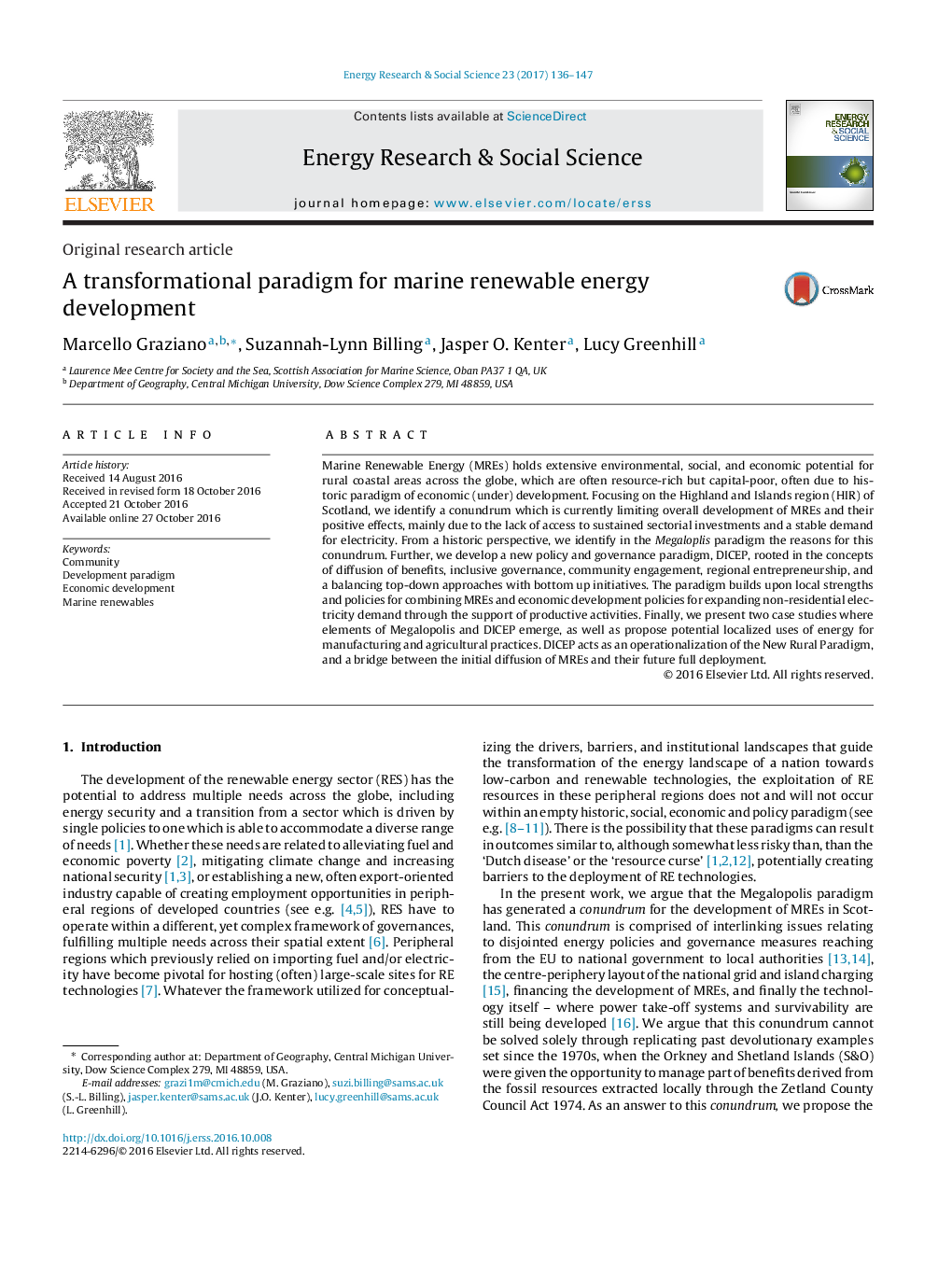| Article ID | Journal | Published Year | Pages | File Type |
|---|---|---|---|---|
| 6464089 | Energy Research & Social Science | 2017 | 12 Pages |
â¢A new policy paradigm for remote and energy resource-rich marine regions.â¢Identification of a conundrum hindering the development of MREs in Scotland.â¢Paradigm combines renewable energy and economic development policies.â¢Localized use of electricity for non-residential applications is advised.â¢A balance between top-down and bottom-up approaches is presented.
Marine Renewable Energy (MREs) holds extensive environmental, social, and economic potential for rural coastal areas across the globe, which are often resource-rich but capital-poor, often due to historic paradigm of economic (under) development. Focusing on the Highland and Islands region (HIR) of Scotland, we identify a conundrum which is currently limiting overall development of MREs and their positive effects, mainly due to the lack of access to sustained sectorial investments and a stable demand for electricity. From a historic perspective, we identify in the Megaloplis paradigm the reasons for this conundrum. Further, we develop a new policy and governance paradigm, DICEP, rooted in the concepts of diffusion of benefits, inclusive governance, community engagement, regional entrepreneurship, and a balancing top-down approaches with bottom up initiatives. The paradigm builds upon local strengths and policies for combining MREs and economic development policies for expanding non-residential electricity demand through the support of productive activities. Finally, we present two case studies where elements of Megalopolis and DICEP emerge, as well as propose potential localized uses of energy for manufacturing and agricultural practices. DICEP acts as an operationalization of the New Rural Paradigm, and a bridge between the initial diffusion of MREs and their future full deployment.
